Parthenope Review: A Dive Into Paolo Sorrentino’s Naples | Cannes 2024
Cast: Celeste Dalla Porta, Gary Oldman, Silvio Orlando, Stefania Sandrelli, Luisa Ranieri, Isabella Ferrari, Peppe Lanzetta
Director: Paolo Sorrentino
Where We Saw It: At the Cannes Film Festival
Filmyhype.com Ratings: 4.5/5 (four and a half stars)
Parthenope arrived at the 77th edition of the Cannes Film Festival as the only film competing in the Official Selection for Italy. Paolo Sorrentino’s signature, however, was enough to reassure everyone, given the high regard and following enjoyed by the Neapolitan filmmaker at an international level, as confirmed by the awards and Oscar nomination two years ago with the film The Hand of God. This time, however, Sorrentino has made a misstep, he gives us a film that, although aesthetically remarkable, is so personal as to be indecipherable, weighed down by an overly distracting screenplay, needlessly pretentious dialogues, and an overly charged atmosphere. Here they are. The sparse and inconstant flashes of beauty. Now they have a face, a name, a time. That of lost youth. The one of carefree love. That of wonderful and decadent Naples, a womb of splendid and bitter memories, which once again inspires the magnificent cinema of Paolo Sorrentino.
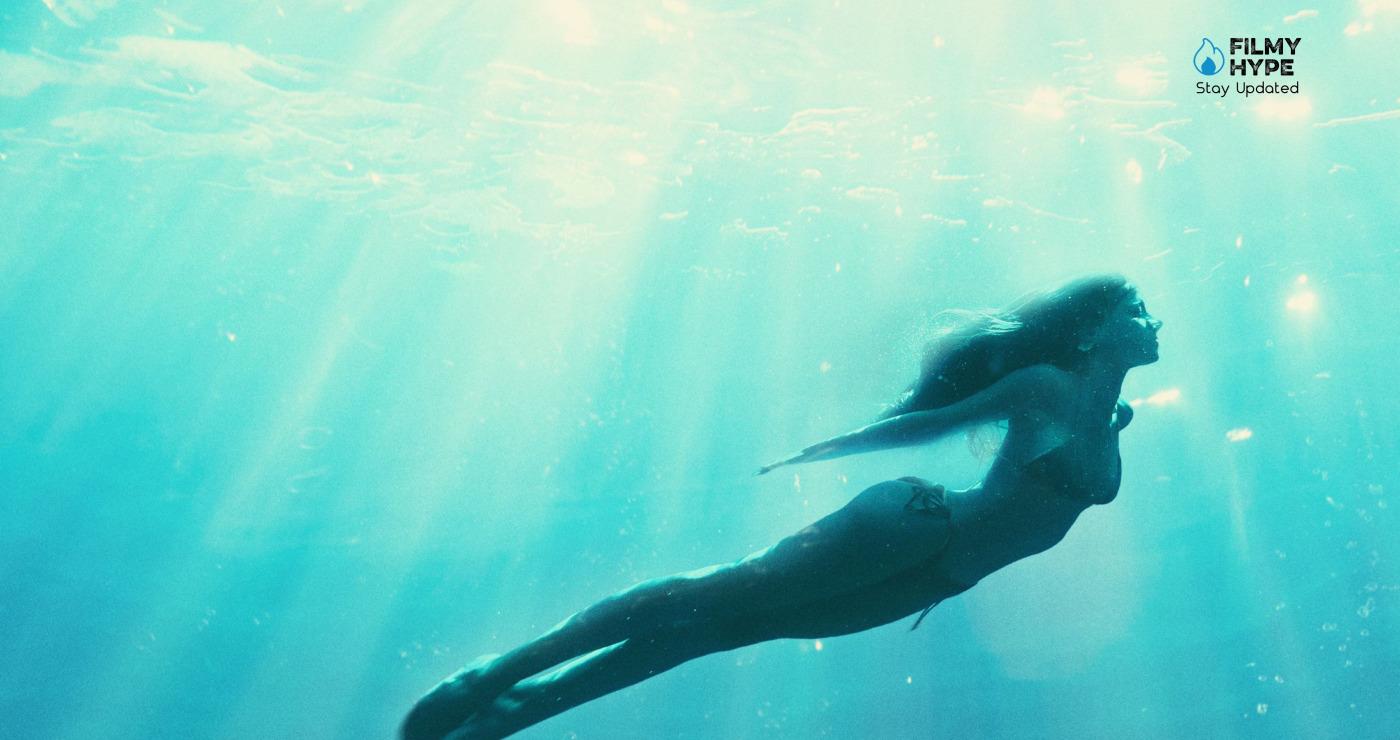
The Apartment Pictures)
We open our review of Parthenope, which marks the director’s return to Cannes since Youth (2015), still immersed in the swirling flow of a film that is difficult to describe because works of this kind must be experienced to come to terms with one’s gaze and sensitivity. And words can only try to touch its essence. First, we tell you that after an intimate and personal film like The Hand of God, Sorrentino does not stop projecting pieces of his life on the screen. Once again with a family history full of pain, which however expands and the painting soon becomes an entire city. His city. His Naples. Maternal and stepmother, cradle to return to and nest from which to escape. All embodied in a woman. That Parthenope which recalls the myth of the mermaid, is very famous within and beyond the borders of Naples. The absolute protagonist of a liquid film moves from the personal to the universal with the naturalness and touch of great cinema.
Parthenope Review: The Story Plot
Naples, 1950. Parthenope (Celeste Della Porta) was born into a rich family of the Neapolitan upper middle class, armed with a beauty that immediately seems to put anyone in awe. Already at 18, she moves with confidence and carefreeness in a city that she dominates with curiosity. , with the desire to try anything, to understand who he is and what he wants to do with his life. Her family is a paradox made of wealth and fragility, and her university years give her a great passion for studies, also thanks to Professor Devoto Marotta (Silvio Orlando), capable of seeing in her that difference from the norm and those qualities, not even she sometimes seems to be aware. We will follow her for a good part of her life, among youthful loves, life plans, parties, and meetings with curious characters, in that Naples of which she seems to represent hopes and disappointments, contradictions and beauty, but of which perhaps, in reality, she does not know as much as he would like or as he should.
Parthenope let’s start by saying that, like The Hand of God, it is a very personal film and therefore characterized by a clear semantic stratification, which is initially its strong point, but as it goes on it becomes the crack decisive, in a construction that perhaps takes on too much of itself. Paolo Sorrentino, with his autobiography, had used Naples as a backdrop, but here she is the great protagonist, Parthenope, who is not a real person, her life, her mistakes, her beauty, and everything absurd and grotesque happens to it, are nothing more than a series of metaphors with which Sorrentino tries to talk to us about this gigantic, inscrutable, chaotic and unpredictable city like no other in the world. There is room for everything, for the immobile and stagnant upper class, for the women who use beauty as a weapon, for the rich people from the North who are the masters, and for the refined intellectuals who get lost in it.
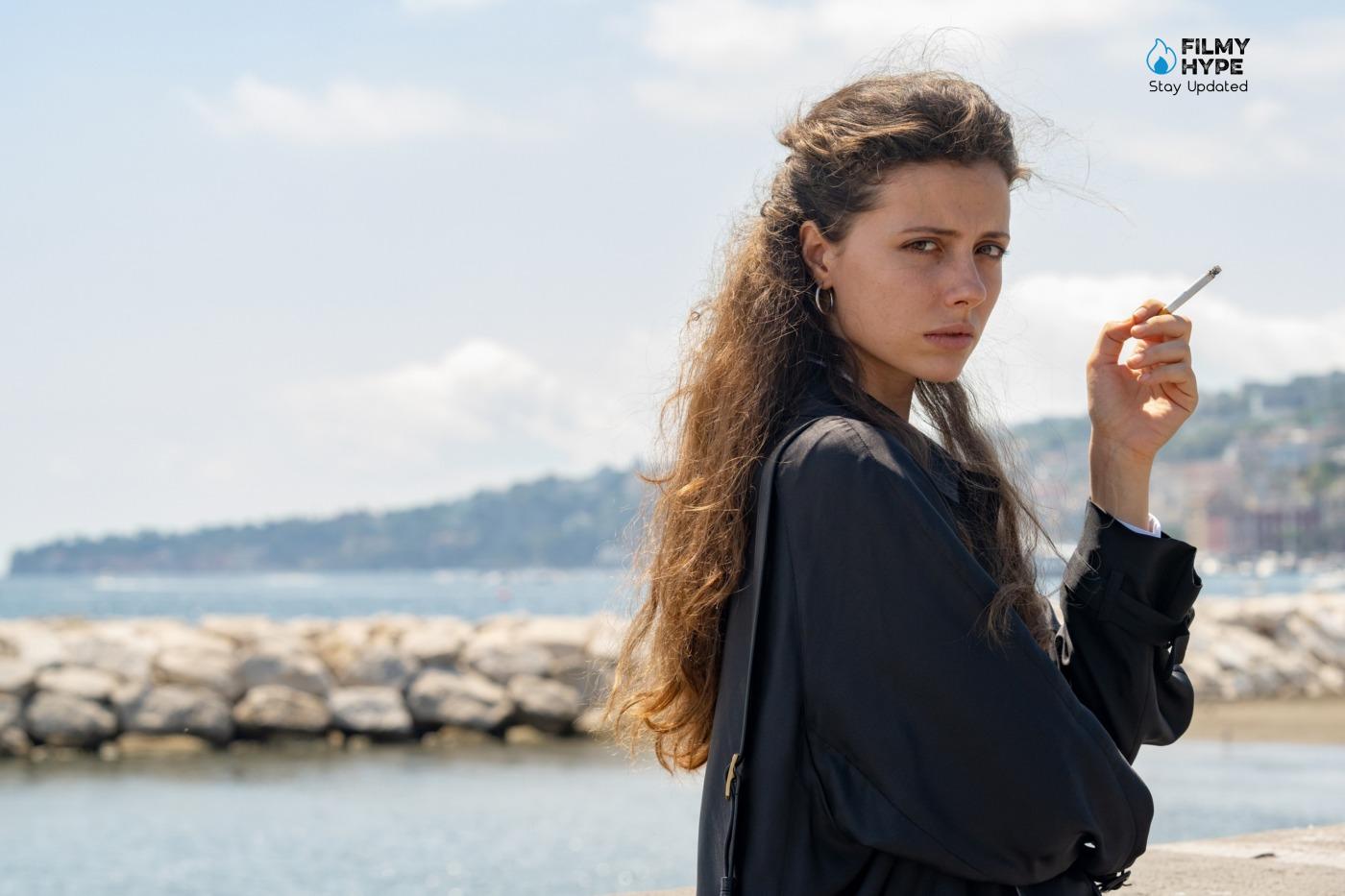
The Apartment Pictures)
Then comes the Camorra, the cholera of 1973, art and beauty, the hypocritical clergy and the cunning and miserable populace, San Gennaro, last season’s scudetto, the great artists and celebrities, the immense culture and vulgarity, the family as a prison… nothing is missing from Naples in Parthenope, who follows the dissolute and sensual steps of Celeste Della Porta, a new female face, called to a difficult task with this character. But, and this is the central problem of Parthenope, Sorrentino creates an enormous distance between himself and the spectator, still binding him to a close-up reading, to a biopic centered on a protagonist who, like it or not, her writing makes unbearable, inconsistent, which moves with truly pretentious dialogues and which deprives the whole of a true ability to develop empathy, to connect us to the protagonists.
Parthenope Review and Analysis
As in the previous film The Hand of God, Parthenope is a story of the loss of innocence, of the sad disenchantment that is adulthood. Like Fabietto, Parthenope enjoys one last beautiful summer, surrounded by the love and adoration of her family, unaware of her social class and genetic privileges (the film insists greatly on her prodigious beauty), still untouched by ache. As underlined by Gary Oldman, Sorrentino talks about the rush of young people in shaking off youth, crossing it distractedly. A tragic event catapults us into the following years, in which Parthenope‘s beauty is still “like war, it opens all doors”, but the sparkle in her eyes is extinguished. She has become a Sorrento character: sensitive, melancholic, enraptured by the memory of something she no longer has, curious but detached. Parthenope embarks on an academic career and builds a truly solitary life, unable to heal the break with his family, the sense of loss, and the sense of guilt.
On a visual and directorial level, the Parthenope is the usual Sorrento jewel. This time the film has a precise chromatic key: the color orange, right from the opening credits, punctuates the entire film and the life of the protagonist, marrying with the photography by Daria D’Antonio, which almost makes us feel the heat and saltiness on the skin. Sorrentino has a very refined taste for the composition of static images and their evolution in movement. His camera languidly lingers on the beauty of the protagonist Dalla Porta, with an old-fashioned approach, exuding desire, which tries to make her irresistible to us too. As always, as much care is spent capturing the sacred and the profane (the treasure of Naples, the miracle of the blood of San Gennaro), the very high and the very low that coexist in Naples. Unlike È stato la mano di Dio, the director’s most autobiographical film, the most personal and heartfelt, Parthenope is the daughter of the most cultured, cerebral, detached Sorrentino. It is similar in approach to Youth and This Must Be the Place, which are the director’s most unsuccessful titles to date.
In the meantime, however, Sorrentino has matured, he has learned to keep together the projects that are most at risk of sinking. Parthenope proves that there is now a balance between “Sorrento scenes” that work (the scene with Lanzetta in the role of Tesorone, bishop of Naples) and those that don’t (a good part of the opening, Marotta’s son). Parthenope‘s main problem lies in its very cerebral, very complex writing, always one step away from the existentialist. There are no passages with light or everyday speech. The typical answer to the catchphrase question “What are you thinking?” it’s “Let’s stay here and watch the summer”. Take for example Gary Oldman’s noble cameo as the writer John Cheever. It takes all his monumental ability to convey alcoholic melancholy to make the incredible sequence of existentialist sentences that make up his almost monologue on beauty, youth, old age, art, and death work. Too much, even for a Sorrentino film.
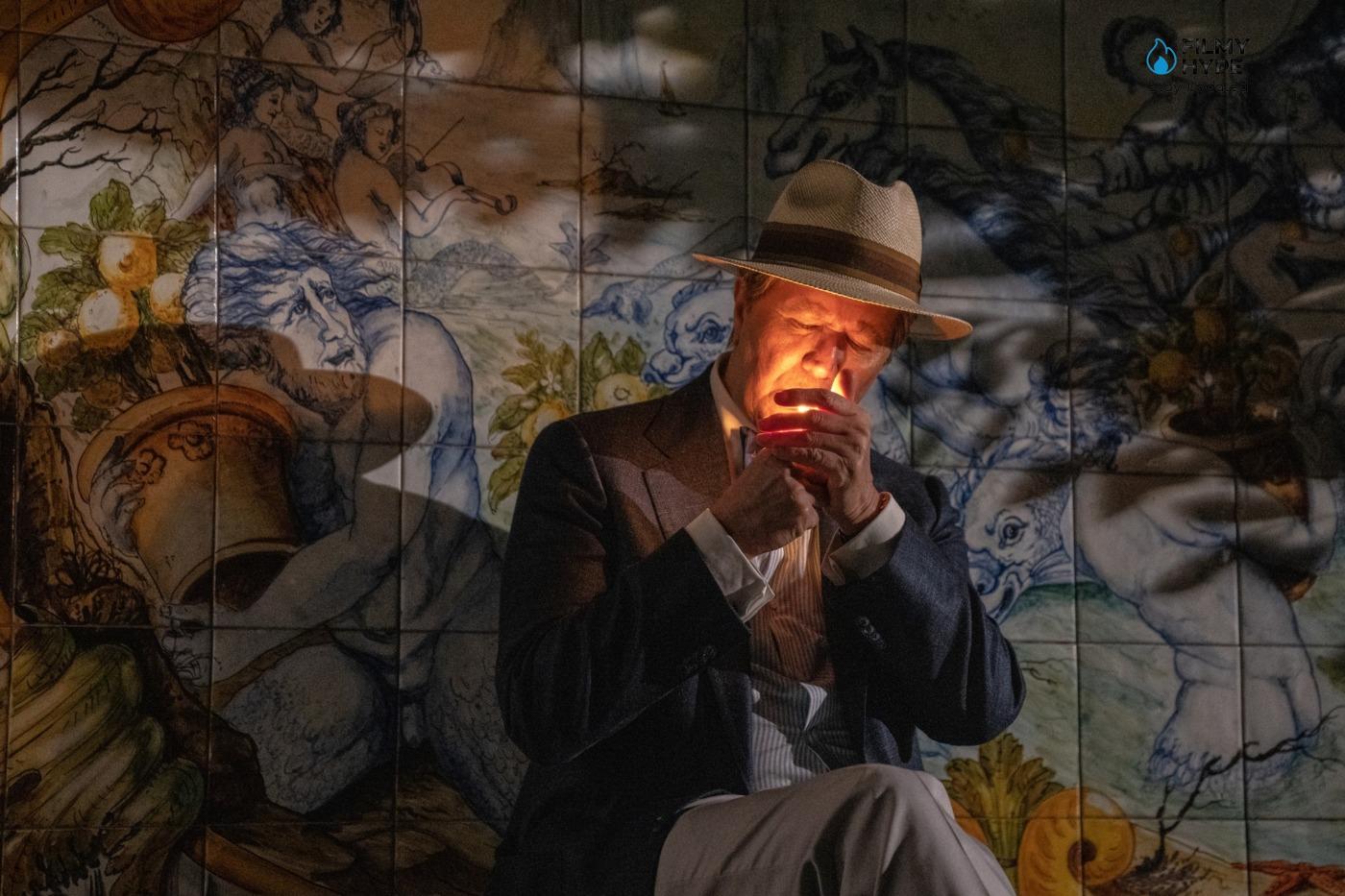
The Apartment Pictures)
Often what separates a great passage of writing from forgettable nonsense is the acting quality of the person who delivers the line. Here Gary Oldman, Silvio Orlando in the role of a gruff university professor, and the aforementioned Peppe Lanzetta in that of Bishop Tesorone bring home passages with a rather high risk of empty ostentation. The same cannot be said of the rest of the cast, starting with the young Dalla Porta. Her incredible beauty does not erase the difficulty with which she tries to act in a realistic and heartfelt manner with phrases so existentialist and high-sounding that they immediately make the rounds and make the film almost a farce. The same can be said for a good chunk of the cast. Parthenope therefore dusts off an old vice that Sorrentino never completely overcame investing his time and energy in bringing the scenes he imagined to the screen, without first asking himself whether it was worth transposing them all, reviewing the economy of a whole story focused on the much talked about but little exhibited and proven extraordinary nature. Celeste’s ready and witty answers are so sketchy by the interpreter that it is difficult to understand the characters’ amazement at her intelligence.
Wanting to look at Parthenope for what it is in its primary form, the one that 90% of the public will reach, makes us think of Godard, of the need not to make political films, but to make films politically. Sorrentino sometimes did it, but here he reminds us how his vision of women has always been, if not superficial, then at least limited. Of course, some of his female characters have been notable, just think of Sabrina Ferilli in La Grande Bellezza, Teresa Saponangelo’s Maria in her disguised biopic, but for the rest, he confirms that he is fascinated but also dominated by a gaze that wants them either divine and purely carnal creatures, or grotesque, almost monstrous and damned figures. Celeste Della Porta is above all the first of her, we see her making mistakes all the time, with the look of her bored little bourgeois diva, who presumes a lot about herself, but who in the end is an inconsistent, self-centered narcissist, presumptuous, totally devoid of empathy.
Parthenope chooses only the wrong men with great enthusiasm and claims a sensitivity and originality that is only fashionable. Impossible to like it. Sorrentino, despite the visual richness created by his usual baroque direction, by Daria D’Antonio’s photography, by Carmine Guarino’s scenography, trusts too much in catchphrases, he doesn’t know how to guide us into the mind of this insatiable girl, he weapons her of truly crude dialogues at times, of absolutes that are a mere trick. The best things in Parthenope come to us from the usual, majestic, cynically tender Silvio Orlando, from a very ferocious Luisa Ranieri, who winks at Loren, Mina, at those who have left the South. Then there is a masked but powerful Isabella Rossellini, the Cardinal of the histrionic Peppe Lanzetta, while Gary Oldman and his John Cheever don’t have much to give us. Parthenope is ultimately a film born from the right idea but developed in a rather wrong way because it was predictable.
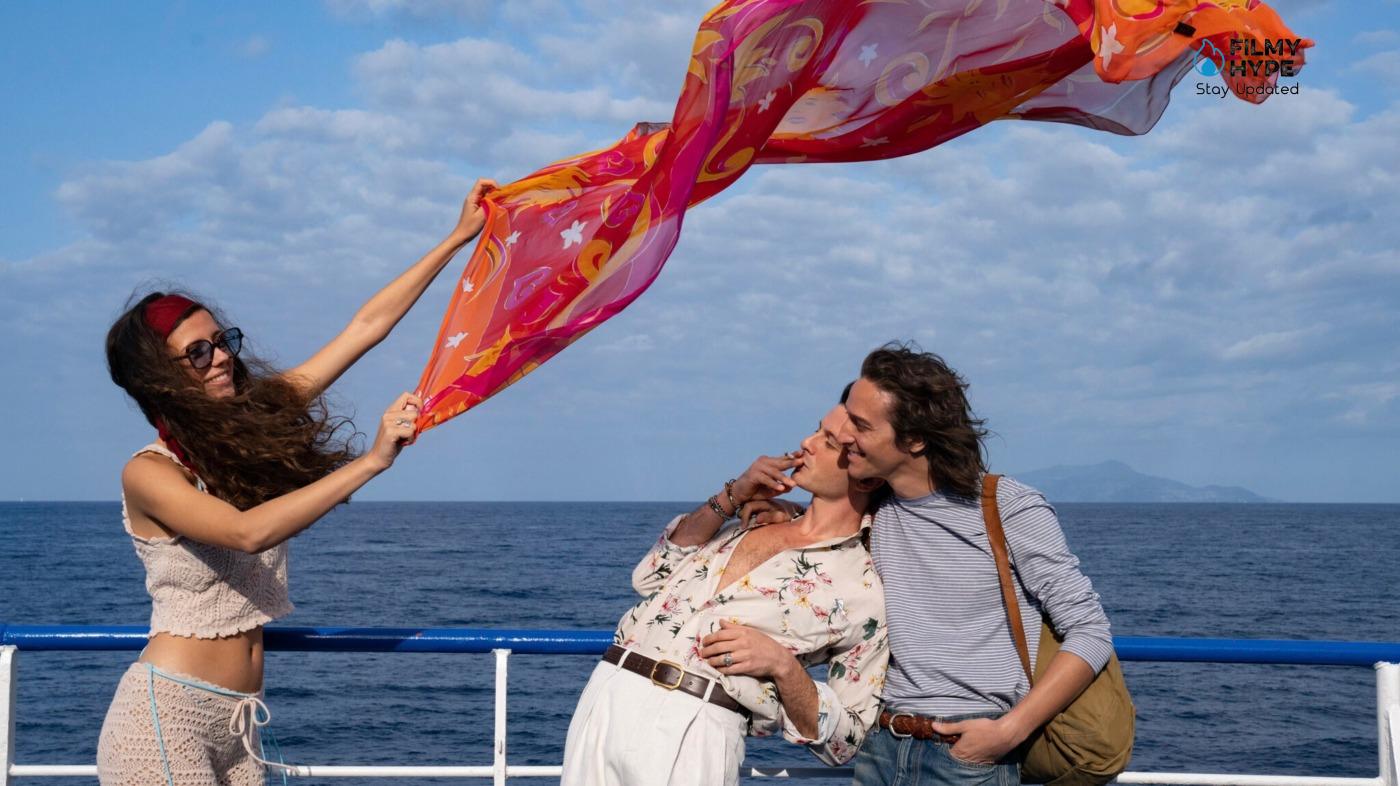
The Apartment Pictures)
Another constant gravitation of the Sorrento Opera and specifically of this film is that between the obvious and the surprising, between mystery and fraud – here we find a sculpture presented in a high-sounding way but which in reality could be in bad taste, inevitable echo of that exhilarating performance of La Grande Bellezza -, and although the emotional engine of the film is identifiable in the notes of Cocciante’s Era Already All Predicted – which accompany some of the best sequences of Sorrentino’s entire filmography – Parthenope manages to render (in ) the truth can be said and to (bring) to life the dimension of mystery and surprise. So it is (not) surprising when, at the end of a long esoteric, mysterious – or fraudulent? – and covering the miracle of San Gennaro, this happens precisely during masturbation in church since the search and disposition towards the Sacred always pass through play and abandonment – also through not taking oneself and therefore God seriously; or when the poignant Marotta played by Silvio Orlando.
He and Gary Oldman dominate the scene with indomitable power – opens the door to the girl to show her his sick son, a giant and almost science fiction being composed “of water and salt”, “like the sea”; or when Parthenope chooses to continue alone. Everything was already planned, even the man you (didn’t) choose. We had left him on the train. Pino Daniele is at high volume in his headphones. The Monticello greeted from the window and a melancholy look towards Naples as it receded. This is how The Hand of God ended: with the young Sorrentino leaving. Parthenope does the exact opposite and begins in the womb of Naples and remains there the whole time. Clinging to the umbilical cord of a place to love and curse. She starts by giving birth to Parthenope, the one who gives the film its name because the film is hers. From 1950 to 2023 Parthenope retraces the life of a girl who embodies the contradictory beauty of Naples itself. She is a restless woman who knows laziness well. She is a woman who never wants to abuse her beauty and then mistreat her.
She is a brilliant scholar who gets dirty with the city’s underworld. Thus emerges the portrait of a contradictory person just as Naples is contradictory, always suspended between beauty and misery. Despite being the first female protagonist in his filmography, Sorrentino never tries to put himself in her perspective by trying to imagine himself as female. Because Parthenope is always the object of desire, she is the center of every gaze, she is the sun around which all the other characters orbit, attracted by her dazzling presence. All thanks to the natural charisma, the intense gaze, and the natural charisma of the magnetic Celeste Dalla Porta, supported by a cast capable of respecting the score of a grotesque, poetic, and ironic Sorrentino at the same time. And so the film becomes a profound reflection on the mystery of the female universe, which Sorrentino contemplates and at the same time questions with the sound of: “What are you thinking?”. The answer eludes him and us. How the mysteries, miracles, and beliefs of an entire city escape.
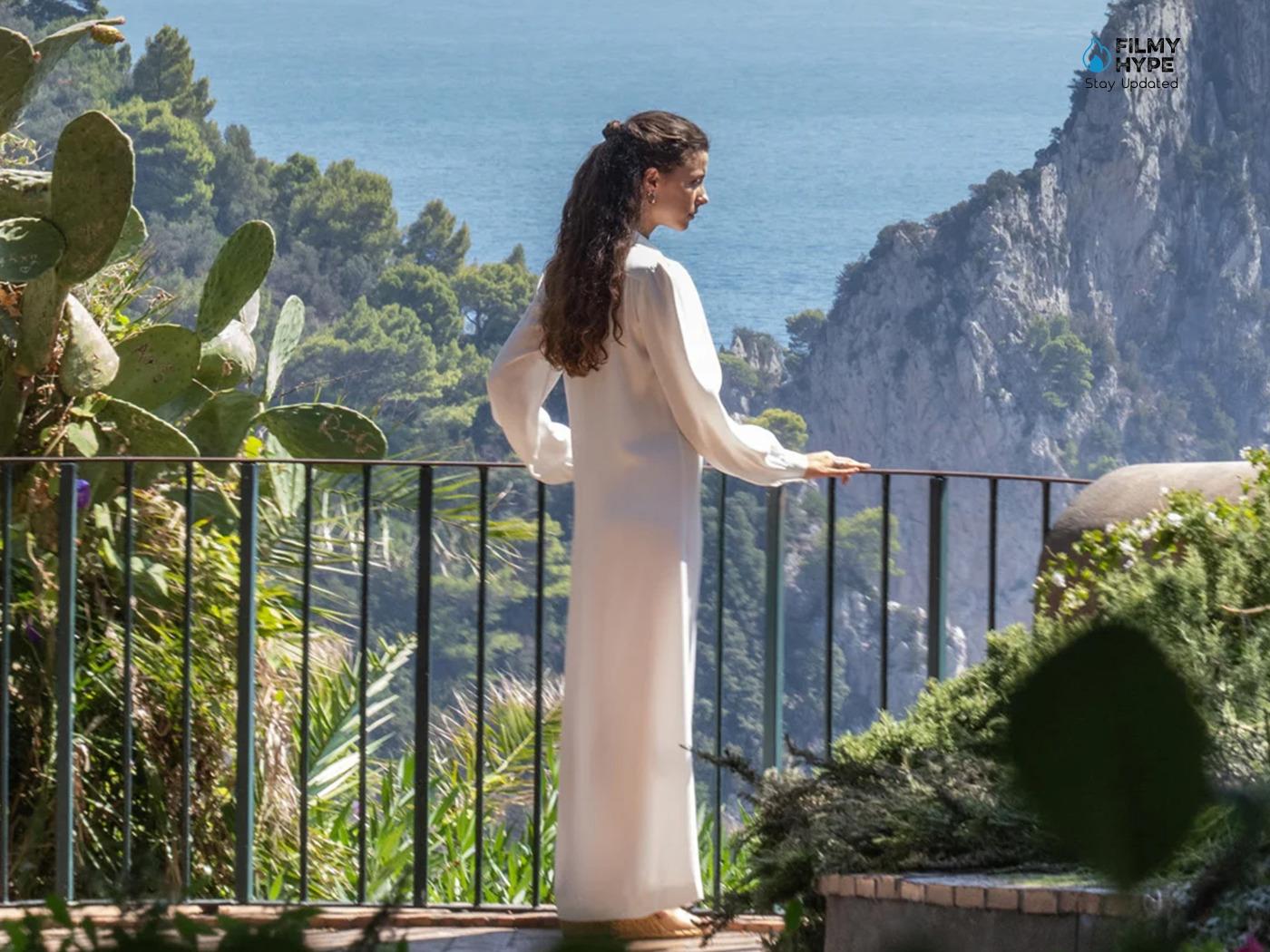
The Apartment Pictures)
Remember that brief memory of The Great Beauty? Towards the end of the film Jep Gambardella sees the beautiful face of his first love for a moment. Here, Parthenope seems like the expansion of that beautiful memory. Because it is a film made of the same substance that melancholy is made of. That of a youth lost in a time that cannot return but can only be stopped and relived thanks to cinema. And so his evocative style returns, preferring suggestion to story. Sometimes the strange paradox of a director who is so good at telling stories through (splendid) images that he doesn’t need words comes to light. It is also true, however, that Sorrentino loves words, and fills the film with catchy phrases (aware of them) and aphorisms that sometimes appear almost superfluous. If anyone loved the drier and more unadorned Sorrentino of Èstato la mano di Dio, here they will find themselves between two currents. Because Parthenope is halfway between his last film and The Great Beauty.
She has the familiar warmth of the former and the emphatic lyricism of the latter. At the center, we meet an old and new Paolo Sorrentino, who returns to themes dear to him with newfound inspiration. He does it with a moving and bitter film. Disillusioned as only romantics can be and in love with cinema. The only thing capable of bringing back the past and the desires of our lost youth. And it is precisely that “or maybe not” that contains within it all of Parthenope‘s poetry, but, if we want, all of Paolo Sorrentino’s cinema. A director who looks at the world with irony and curiosity, who never stops asking questions: what does it mean to enjoy youth and live carefree? What are women thinking? How can you love a city that has taken everything away from you and yet can give itself so much beauty? For the good of cinema, dear Paolo Sorrentino, we hope you never find the answers. Or maybe not.
Parthenope Review: The Last Words
In our review of Parthenope, we tried to tell you something that cannot be told. Because Paolo Sorrentino’s cinema is so linked to the evocative power of images it cannot be told in words. It also happens in this splendid and moving portrait of a woman who gradually transforms into the great painting of Naples. Paolo Sorrentino enchants with Parthenope, a work that explores the charm and complexity of Naples through the eyes of a magnetic protagonist of rare beauty. With breathtaking cinematography and an evocative soundtrack, the film offers a deep and engaging emotional journey for anyone who knows and loves the Neapolitan director’s unique style. Parthenope is Sorrentino’s most intense film, a carriage that travels immobile among the most vivid and harrowing roads of existence, a film not to be missed in which to get lost in contemplation.






